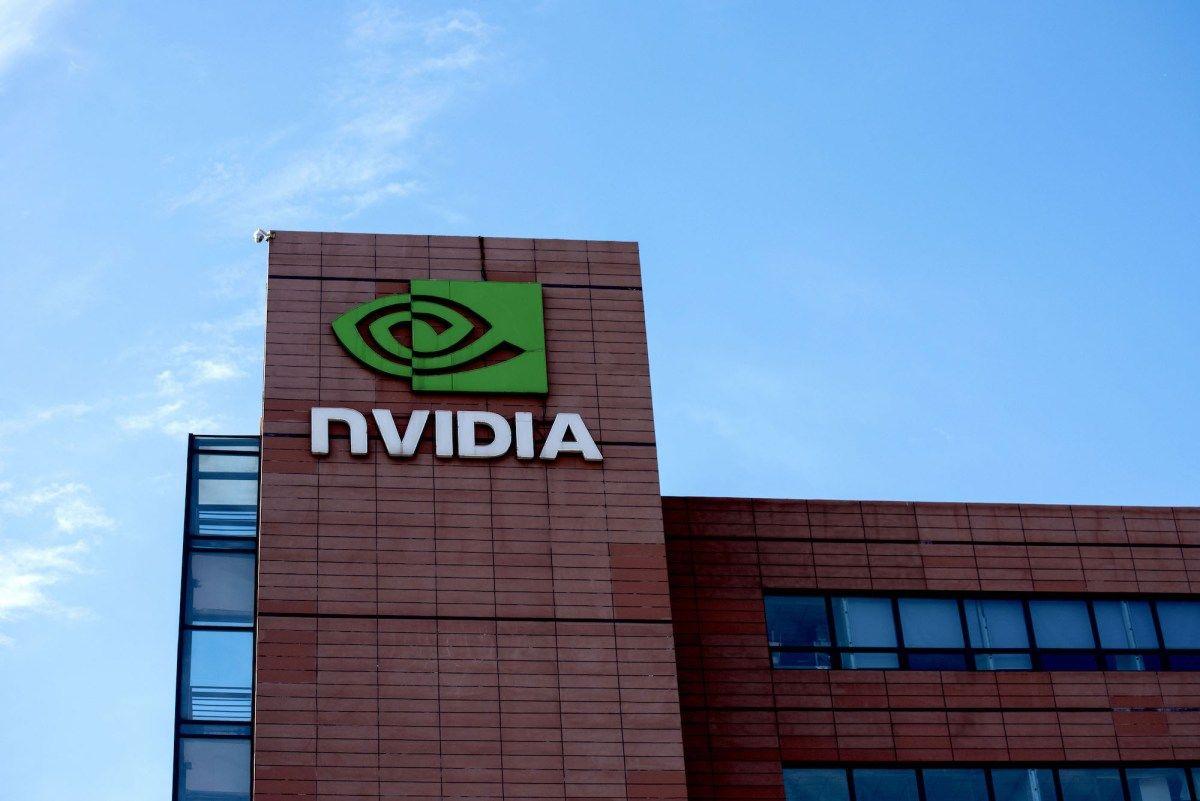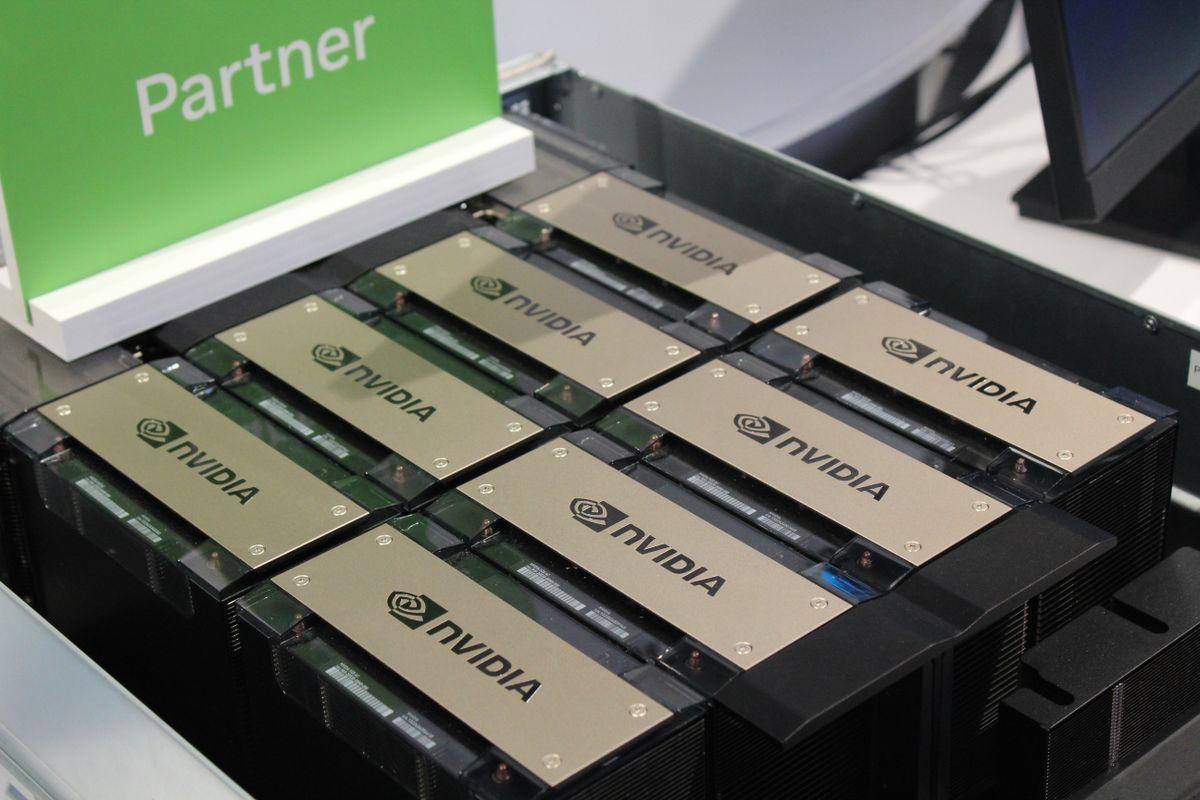Intel Joins Nvidia in Facing AI Chip Export Restrictions to China Amid Escalating Trade Tensions
2 Sources
2 Sources
[1]
Intel will need license to export AI chips to Chinese clients, FT reports
April 16 (Reuters) - American chipmaker Intel (INTC.O), opens new tab has informed Chinese clients it will start needing a license to sell some of its advanced artificial intelligence processors, the Financial Times reported on Wednesday. The news comes a day after Nvidia (NVDA.O), opens new tab warned of a $5.5 billion hit as Washington restricted exports of its AI processor tailored for China. Dutch chip-making tools giant ASML (ASML.AS), opens new tab also raised doubts about its outlook earlier in the day. Intel, under new CEO Lip-Bu Tan, told clients last week that its chips would require a license for exporting to China if they have a total DRam bandwidth of 1,400 gigabytes (GB) per second or more, input-output (I/O) bandwidth of 1,100 GB per second or more, or a total of both of 1,700 GB per second or more, according to the report. Intel's Gaudi series as well as Nvidia's H20 far exceed these requirements, the report said. The chipmaker did not immediately respond to a Reuters request for comment. Intel's shares closed more than 3% lower on Wednesday, under pressure like other chip stocks, on fresh evidence of how U.S. President Donald Trump's shifting trade policy was complicating the outlook for semiconductor and computing giants. The AI chip trade is losing steam after a two-year rally as tariff threats and fears over Big Tech's spending weigh on sentiment. Reporting by Juby Babu in Mexico City; Editing by Devika Syamnath Our Standards: The Thomson Reuters Trust Principles., opens new tab Suggested Topics:Technology
[2]
Intel Shares Have Dropped 47% In The Past Year, Now Chipmaker Faces China AI Chip Curbs Just Like Nvidia Amid Trade Tensions - Advanced Micro Devices (NASDAQ:AMD), ASML Holding (NASDAQ:ASML)
Intel Corporation INTC has reportedly informed its Chinese clients last week that it will now require a license to export certain advanced artificial intelligence processors. What Happened: The new restriction applies to chips with a total DRAM bandwidth of 1,400 gigabytes per second or more, or an I/O bandwidth of 1,100 GB per second, reported Financial Times. The Gaudi series from Intel, similar to Nvidia Corporation's NVDA H20 processor, exceeds these thresholds and will be affected by the new rules. The move comes a day after Nvidia warned it could face a $5.5 billion hit from similar export restrictions imposed by the U.S. government. See Also: Netflix Debuts OpenAI-Backed Search Engine That Lets You Discover Movies And TV Shows Based On Emotions, Not Just Titles Why It's Important: The latest chip licensing rule marks a new escalation in the ongoing U.S.-China trade tensions. While the Donald Trump administration has paused reciprocal tariffs for several nations, it has simultaneously imposed higher duties on Chinese imports. In response, China hit back over the weekend with retaliatory tariffs of up to 125% on U.S. goods. Advanced Micro Devices, Inc. AMD disclosed in a Wednesday morning filing that new export restrictions on chips could lead to charges of up to $800 million tied to inventory and purchase commitments. Meanwhile, ASML Holdings ASML released its first-quarter earnings on Wednesday, cautioning that rising tariffs have added uncertainty to its outlook, potentially contributing to broader market weakness. Price Action: Intel's shares fell by 3.12% on Wednesday, continuing a downward trend that has seen its stock drop nearly 47% in the past year. Year-to-date, Intel is down by 4.9%, according to data from Benzinga Pro. AMD shares dropped 7.35% on Wednesday, while ASML and Nvidia fell 7.06% and 6.87%, respectively, reflecting broader pressure on the semiconductor sector. Intel currently holds a growth score of 3.51%, according to Benzinga Edge Stock Rankings. Click here to see how it compares with Nvidia, ASML, AMD, and other major players in the chip industry. Read More: 'Most People Don't Have The Balls To Do It,' Says Mark Cuban, Praising Musk For Going 'All In' With His Own Money For His Startups Photo Courtesy: Tada Images On Shutterstock.com Disclaimer: This content was partially produced with the help of AI tools and was reviewed and published by Benzinga editors. AMDAdvanced Micro Devices Inc$88.25-7.39%Stock Score Locked: Want to See it? Benzinga Rankings give you vital metrics on any stock - anytime. Reveal Full ScoreEdge RankingsMomentum14.72Growth66.58Quality83.08Value15.02Price TrendShortMediumLongOverviewASMLASML Holding NV$637.00-6.76%INTCIntel Corp$19.12-3.68%NVDANVIDIA Corp$103.38-7.86%Got Questions? AskWhich semiconductor companies could rebound?How might Nvidia navigate export restrictions?Which tech stocks are most vulnerable to tariffs?What impact will China's tariffs have on U.S. exports?Could AMD face further losses from restrictions?Which investors should be cautious with chip stocks now?What opportunities exist in alternative semiconductor firms?How will ASML adapt to trade tensions?Which emerging markets can benefit from U.S.-China tensions?Will AI chip demand shift to non-U.S. companies?Powered ByMarket News and Data brought to you by Benzinga APIs
Share
Share
Copy Link
Intel has informed Chinese clients that it will require licenses to export certain advanced AI processors, following similar restrictions faced by Nvidia. This move comes amid escalating U.S.-China trade tensions and has significant implications for the global semiconductor industry.

Intel Implements New Export Restrictions on AI Chips
Intel Corporation has joined the ranks of chip manufacturers facing export restrictions to China, as reported by the Financial Times. The American chipmaker has informed its Chinese clients that it will now require a license to sell certain advanced artificial intelligence processors
1
. This development comes in the wake of similar restrictions faced by Nvidia and reflects the ongoing tensions in U.S.-China trade relations, particularly in the high-tech sector.Specifics of the Export Restrictions
According to Intel's communication with clients last week, chips requiring an export license to China include those with:
- A total DRAM bandwidth of 1,400 gigabytes (GB) per second or more
- An input-output (I/O) bandwidth of 1,100 GB per second or more
- A combined total of both exceeding 1,700 GB per second
1
These specifications encompass Intel's Gaudi series and Nvidia's H20 processor, both of which surpass these thresholds
2
.Impact on the Semiconductor Industry
The new restrictions have sent ripples through the semiconductor industry:
- Nvidia warned of a potential $5.5 billion hit due to these export restrictions
1
. - Advanced Micro Devices (AMD) disclosed that the new export rules could lead to charges of up to $800 million related to inventory and purchase commitments
2
. - ASML Holdings, a Dutch chip-making tools giant, expressed concerns about the uncertainty added to its outlook due to rising tariffs
1
.
Related Stories
Market Reaction and Stock Performance
The news has had a significant impact on the stock market:
- Intel's shares fell by 3.12% on Wednesday, continuing a downward trend that has seen its stock drop nearly 47% in the past year
2
. - AMD shares dropped 7.35%, while ASML and Nvidia fell 7.06% and 6.87% respectively
2
.
These declines reflect broader pressure on the semiconductor sector and growing concerns about the impact of trade tensions on the industry's outlook.
Escalating U.S.-China Trade Tensions
The new chip licensing requirements mark another escalation in the ongoing U.S.-China trade dispute. While the Trump administration has paused reciprocal tariffs for several nations, it has simultaneously imposed higher duties on Chinese imports. In response, China retaliated over the weekend with tariffs of up to 125% on U.S. goods
2
.These developments have complicated the outlook for semiconductor and computing giants, adding uncertainty to an industry already grappling with shifting trade policies and concerns over Big Tech spending.
References
Summarized by
Navi
Related Stories
AMD Faces $800 Million Charge as US Tightens AI Chip Export Controls to China
17 Apr 2025•Business and Economy

Huawei Challenges Nvidia's AI Chip Dominance with New Ascend 920 Processor
29 Apr 2025•Technology

U.S. Government Imposes Export Restrictions on Nvidia's H20 AI Chips to China
10 Apr 2025•Policy and Regulation

Recent Highlights
1
Pentagon threatens Anthropic with Defense Production Act over AI military use restrictions
Policy and Regulation

2
Google Gemini 3.1 Pro doubles reasoning score, beats rivals in key AI benchmarks
Technology

3
Anthropic accuses Chinese AI labs of stealing Claude through 24,000 fake accounts
Policy and Regulation





